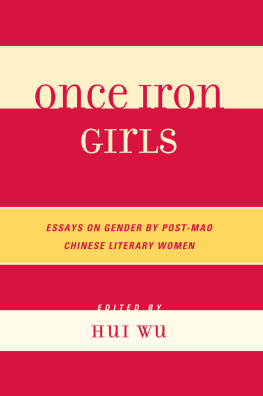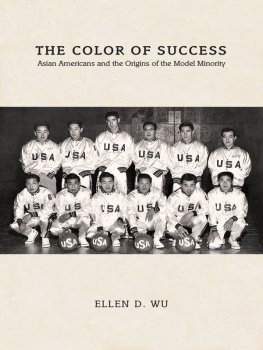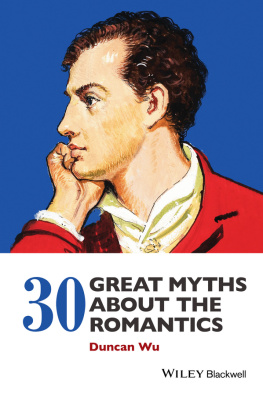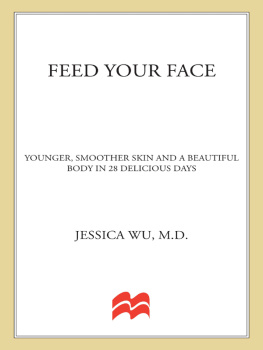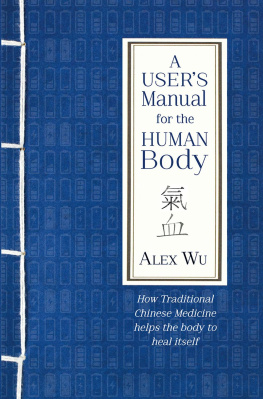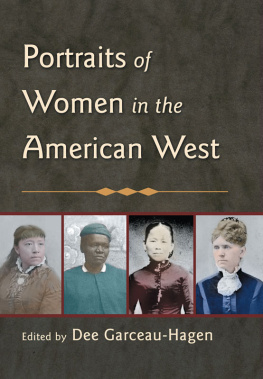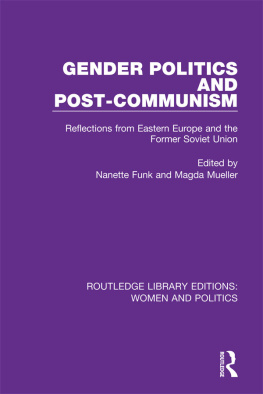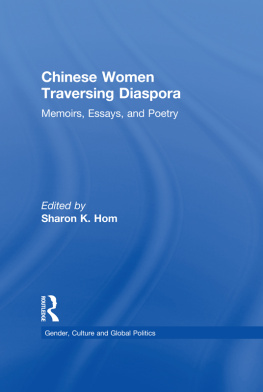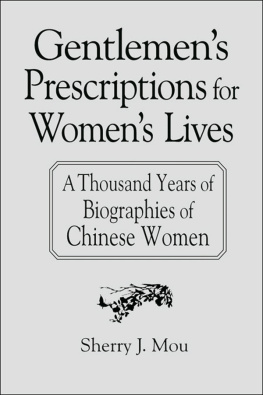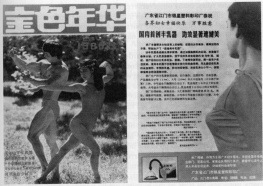ACKNOWLEDGMENTS
I must express my gratitude to all who have helped me in one way or another. I am indebted deeply to Daoming Chen, my dear husband, for offering wisdom and hugs whenever I need them; to T. Donna Chen, my beloved daughter, for reading the book in its infancy; to the University Research Council at the University of Central Arkansas for a travel grant and several summer research stipends that enabled me to complete the field work in China and the manuscript; to Professor Marcy Tucker at Texas A&M University at Kingsville, for critiquing the manuscript and offering her insight; and to the Lexington Books editor, Michael Sisskin, for his assistance and appreciation of Chinese literary feminism. And all my other colleaguesProfessor Roger Ames at the University of Hawaii, Professor Patricia Bizzell at the College of the Holy Cross, Professors Cheryl Glenn and Xiaoye You at the Penn State University, and anonymous reviewers of my manuscript, are aware of my appreciation of their recommendations of and interest in this book.
Special thank-you notes go to Professor C. Jan Swearingen at Texas A&M University for her long-term friendship and persistent support, Professor Emeritus Winifred B. Horner, and Professor Linda Hughes. Dr. Horners courses aroused my passion for comparative studies of rhetoric. Dr. Hughess remark that One must have freedom to quest is my inspiration of all time.
Without these peoples support and inspiration, I could not have brought Chinese literary womens feminist philosophy and rhetoric to this side of the Pacific. Thank you.
BIBLIOGRAPHY
Ai, Xiaoming. Womens Issues in China: Some Facts. ASIANetwork: Exchange VIII, no. 1 (Fall 2000): 1719.
Apodaca, Clair. The Effects of Foreign Aid on Womens Attainment of Their Economic and Social Human Rights. Journal of Third World Studies 17, no. 2 (2000): 20227.
Barlow, Tani. Politics and Protocols of Fun: (Un)Making National Woman. In Engendering China: Women, Culture, and the State, edited by Christina Gilmartin, Gail Hershatter, Lisa Rofel, and Tyrene White. Cambridge, Mass.: Harvard University Press, 1994 (33959).
. The Question of Women in Chinese Feminism. Durham, N.C.: Duke University Press, 2004.
Barlow, Tani, and Gary Bjorge, eds. I Myself Am a Woman: Selected Writings of Ding Ling. Boston: Beacon Press, 1989.
de Beauvoir, Simone. The Second Sex, translated by H. M. Parshley. New York: Alfred A. Knopf, 1971.
Bi, Shumin. Tixing xingfu (The Reminder of Happiness). Zhuhai, Guangzhou: Zhuhai Press, 1996.
Bi Shumin. zt.tibet.cn/zt/zt2002003725152327.html (accessed July 23 2009).
Buffton, Deborah. Finding Their Voices: Stages of Liberation in the Works of Chinese Women Writers Since 1920. MIFLC-Review 1 (1991): 3545.
Chang, Kang-I Sun, and Haun Saussy, eds. Women Writers of Traditional China: An Anthology of Poetry and Criticism. Stanford, Calif.: Stanford University Press, 1999.
Chen, Mingxia.The Marriage Law and the Rights of Chinese Women in Marriage and the Family. Holding up Half the Sky, edited by Tao Jie, Zheng Bijun, and Shirley L. Mow. New York: Feminist Press, 2004 (15971).
Chow, Ray. Violence in the Other Country: China as Crisis, Spectacle, and Woman. In Third World Women and the Politics of Feminism, edited by Chandra T. Mohanty, Ann Russo, and Lourdes Torres. Bloomington: Indiana University Press, 1991 (81100).
Croll, Elizabeth. Changing Identities of Chinese Women. London: Zed Books, 1995.
Dooling, Amy, and Kristina Torgeson, eds. Writing Women in Modern China: An Anthology of Womens Literature from the Early Twentieth Century. New York: Columbia University Press, 1998.
Duocai de nxing huajuan [Colorful Portraits of Women]. Wenhui dushu zhoubao [Wenhui Readers Weekly] (March 25, 1989): 2.
Engels, Frederick. The Origin of Family, Private Property and the State. New York: Pathfinder, 1972.
Fan, Carol. Feminist Movements in China. Literary Studies East and West 12 (1996): 1527.
Fang, Fang. Chumen kan fengjing [Go Sightseeing]. Xian, Shanxi: Shanxi shifan daxue chuban she [Shanxi Teachers University Press], 1998.
. Speech at Central China University of Science and Technology. news. hustonline.net/Html/2006-4-22/29026.shtml (accessed July 23, 2008).
Female Writer Zhang Kangkang. www.china.org.cn/english/NM-e/87835.htm (accessed August 29, 2008).
Han, Xiohui. Nren buhui ku [Women Dont Cry]. Beijing: Huaqiao chubanshe [Overseas Chinese Press], 1998.
Hershatter, Gail. Women in Chinas Long Twentieth Century. Berkeley: University of California Press, 2007.
Honig, Emily, and Gail Hershatter. Personal Voices: Chinese Women in the 1980s. Stanford, Calif.: Stanford University Press, 1988.
Hu, Xin. Four Women of Forty. In The Serenity of Whiteness: Stories By and About Women in Contemporary China, edited and translated by Zhu Hong. New York: Ballantine Books, 1991 (15887).
. Nren de yanjing [Womens Eyes]. Nanchang: Baihuazhou wenyi chubanshe [Baihuazhou Arts and Literature Press], 1998.
Hu, Shih. Nren yeshi ren [Women Are Also Humans]. In Mingren tan nren [Renowned Writers on Women]. Haikou, Hainan: Hainan Press, 1992 (4243).
Jia, Pingwa. Shuohua [Speaking]. Xian, Shaanxi: Peoples Press, 1995.
Jiang, Yongping. Employment and Chinese Urban Women Under Two Systems. In Holding Up Half the Sky, edited by Tao Jie, Zheng Bijun, and Shirley Mow. New York: Feminist Press, 2004 (20720).
Legge, James, trans. Li Chi: Book of Rites. New Hyde Park, N.Y.: University Books, 1967.
Li, Sangyin. The Patterned Lute. www.dpo.uab.edu/~yangzw/lishy1.html#1.2 (accessed August 26, 2007).
Li, Xiaojiang. Economic Reform and the Awakening of Chinese Womens Collective Consciousness. In Engendering China: Women, Culture, and the State, edited by Christina Gilmartin, Gail Hershatter, Lisa Rofel, and Tyrene White. Cambridge, Mass.: Harvard University Press, 1994 (36082).
Li, Yan. Zhang Kangkang. news.xinhuanet.com/book/2004-08/17/content_1804409.htm (accessed July 23, 2007).
Liang Shiqiu. Nren [Woman]. In Mingren tan nren [Renowned Writers on Women]. Haikou, Hainan: Hainan Press, 1992 (3741).
Lin, Julia, trans. Women of the Red Plain: An Anthology of Contemporary Chinese Womens Poetry. New York: Penguin Books, 1993.
Lin,Yutang. My Country and My People. New York: John Day, 1939.
Liu, Lydia H. Invention and Intervention: The Making of a Female Tradition in Modern Chinese Literature. In Chinese Femininities/Chinese Masculinities: A Reader, edited by Susan Brownell and Jeffrey N.Wasserstrom. Berkeley: University of California Press, 2002 (14974).
Liu, Shih Shun. Chinese Classical Prose: The Eight Masters of the Tang-Sung Period. Hong Kong: Chinese University Press, 1979.
Lu, Qingfei, ed. Dangdai qingnian nuzuojia pingzhuan [The Biographical Commentary on Contemporary Women Writers]. Beijing: China Womens Press, 1990.
Lu, Tonglin. Introduction. In Gender and Sexuality in Twentieth-Century Chinese Literature and Society, edited by Tonglin Lu. Albany: State University of New York Press, 1993 (122).
Lu, Xinger. The Sun is Not Out Today. In The Serenity of Whiteness: Stories By and About Women in Contemporary China, edited and translated by Zhu Hong. New York: Ballantine Books, 1991 (188207).
. Nren bu tiansheng [One is Not Born Woman]. Shanghai: Shanghai chudian [Shanghai Bookstore Press], 1996.
Ma, Fengzao, and An Dongliang, eds. Jianming xiezuo jiaocheng [A Sourcebook for the Writing Course]. Tianjing: Nankai University Press, 1998.

